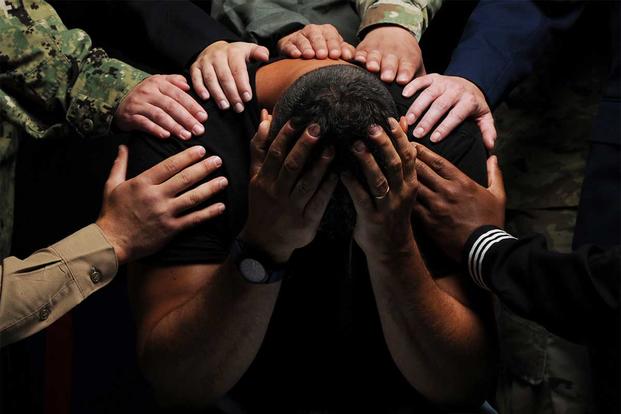Historically, suicide rates in the U.S. Army have dipped during periods of combat. But that trend has not held true in the lengthy wars of Vietnam, Afghanistan and Iraq, a recent study of Army suicide rates from 1819 to 2017 found.
The largest historical study to date of suicide in the U.S. Army was published last week in the Journal of the American Medical Association (JAMA) Network Open. Two professors and a student from the University of Hawaii at Hilo conducted the study in conjunction with the Department of Defense. Researchers relied on the U.S. Army Surgeon General Office's data and used other government records for their findings.
"One of the things that stood out to me was the apparent consistency of suicide rates declining during wartime prior to the so called endless wars of the mid 20th century onward," lead author Jeffrey Smith, the university's history department chairman, said in an email.
He and other researchers wrote in their study that, in addition to considering outside factors that contribute to higher suicide rates during peacetime, it's instructive to study how the length of wars is affecting suicide rates.
Related: Military Suicide Rates Hit Record High in 2018
"The data that most struck me, to be honest, was the paradigm shift from the early 20th century into the post-World War II era," Michael Doidge, Defense Health Agency historian, said via email. "I can find NO evidence that the Army established suicide prevention programs prior to, during, or in the wake of World War II, yet the number dropped precipitously, and, even where it rose postwar as it has done in the 19th century, that number never came close to pre World War II levels."
The researchers chose to study the Army's suicide rates because that branch is the oldest and traditionally largest, and it is "consistently the easiest" to access due to its publically available data.
Even then, there were information gaps, including after the Civil War, when record-keepers did not differentiate suicide from other causes of death, or in the 1960s, when the Army changed its records management systems.
"On the whole, however, I found Army suicide reporting data cohesive, coherent and increasingly sophisticated," Doidge said.
He added that he has been impressed by modern efforts to tackle the data, like the annual DoD Suicide Event Report, which is a standardized suicide surveillance effort that tracks total suicide deaths and manner of death, among other factors.
Doidge said he hopes the results of this study will challenge historians and dispel myths to the public about the causes of service member suicide.
"We historians deal with the human condition, and disease, medicine, and health are a great part of that condition," he said. "Secondly, I hope that this work may be operationalized to challenge assumptions on military suicide among laymen and policy makers alike so that we may better inform and develop policies, programs, and procedures to decrease military suicide rates."
The ideal outcome for Smith is similar as he hopes this study will "reframe" our approach to military suicide now that the usual understanding that combat is the primary driver of suicide is historically incorrect.
"Hopefully, this leads to additional multidisciplinary collaborations to help address a problem that is multifactorial," Smith said. "By extension, I hope the study can play a part in helping us get a better understanding of, as well as ways to decrease, suicide rates in the military."
The group is planning additional studies and in the next phase, they will look at civilian and veteran data to compare suicide rates and trends, according to a University of Hawaii at Hilo news release.
-- Dorothy Mills-Gregg can be reached at dorothy.mills-gregg@military.com. Follow her on Twitter at @DMillsGregg.
Read More: Proposed Ban on Tobacco Sales to Those Under 21 Would Affect Troops















